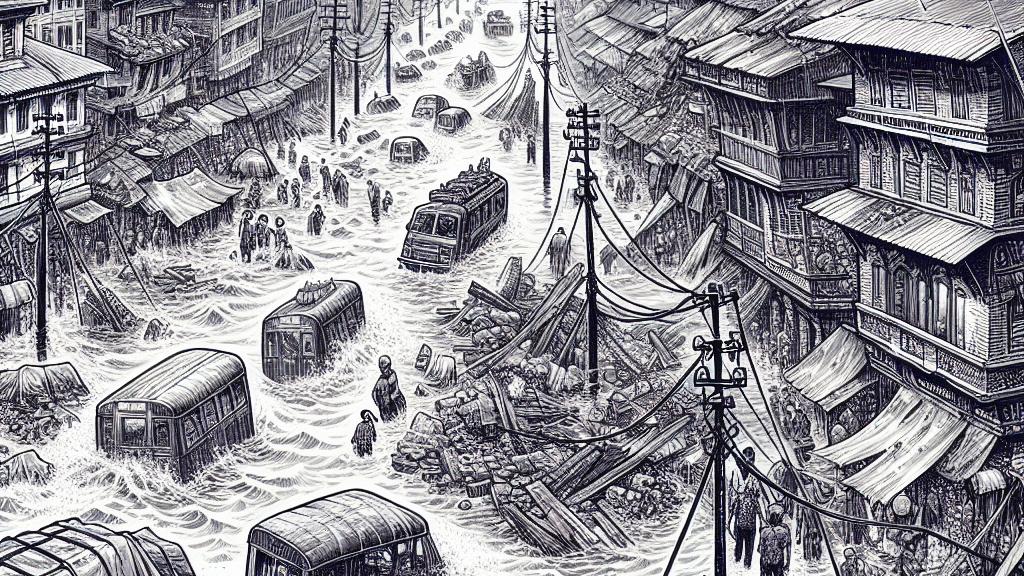Devastating Floods and Landslides in Nepal Result in Casualties
Overview
- Heavy rainfall triggers catastrophic floods and landslides across Nepal.
- 66 confirmed dead, with 69 still missing and urgent rescue efforts ramping up.
- Emergency actions taken in Kathmandu as local communities face unprecedented disruption.

The Catastrophic Impact of Heavy Rainfall
In Nepal, particularly in Kathmandu, the relentless rains that began early Friday have led to devastating floods and deadly landslides. The death toll has tragically reached 66, with 69 individuals reported missing, leaving families and communities in despair. The Kathmandu valley, teeming with about 4 million residents, witnessed extraordinary rainfall amounts—with some areas experiencing up to 322.2 millimeters overnight! This deluge transformed busy streets into raging rivers, paralyzing the city and leaving it eerily silent, as the normally lively markets and thoroughfares stood still under water.
Heroic Emergency Response and Community Resilience
As the water levels rose, local authorities and rescue teams launched a courageous response to save those stranded by the floods. Rescuers used helicopters and rubber boats to navigate the perilous waters and reach individuals trapped on rooftops or clinging to safety amid the chaos. The Nepal Police reported that highways were obstructed in 63 locations due to landslides, making travel nearly impossible. In a swift and crucial decision, the government ordered the closure of schools and suspended ongoing exams, emphasizing their commitment to student safety. Amidst this turmoil, power outages plagued Kathmandu, complicating rescue efforts and causing frustration. Yet, through all the fear and uncertainty, tales of bravery emerged—first responders worked tirelessly, sacrificing their comfort for the sake of others, highlighting the incredible resilience and solidarity of the Nepalese people.
The Ongoing Challenge of Natural Disasters in Nepal
Sadly, this event serves as a stark reminder that Nepal frequently faces such disasters. Each monsoon season, communities are vulnerable to devastating flash floods and landslides that can wreak havoc on lives and property. Historical records reveal that hundreds lose their lives each year to these merciless natural calamities, creating a heartbreaking cycle of grief and loss. For example, during last year’s monsoon, much of the same region experienced catastrophic flooding, claiming numerous lives and leading to widespread destruction. As the nation grapples with this latest crisis, there is a growing call to enhance disaster preparedness and response efforts, ensuring that communities not only recover but are better equipped to face the challenges of tomorrow—highlighting the importance of resilience and proactive planning in an unpredictable world.

Loading...